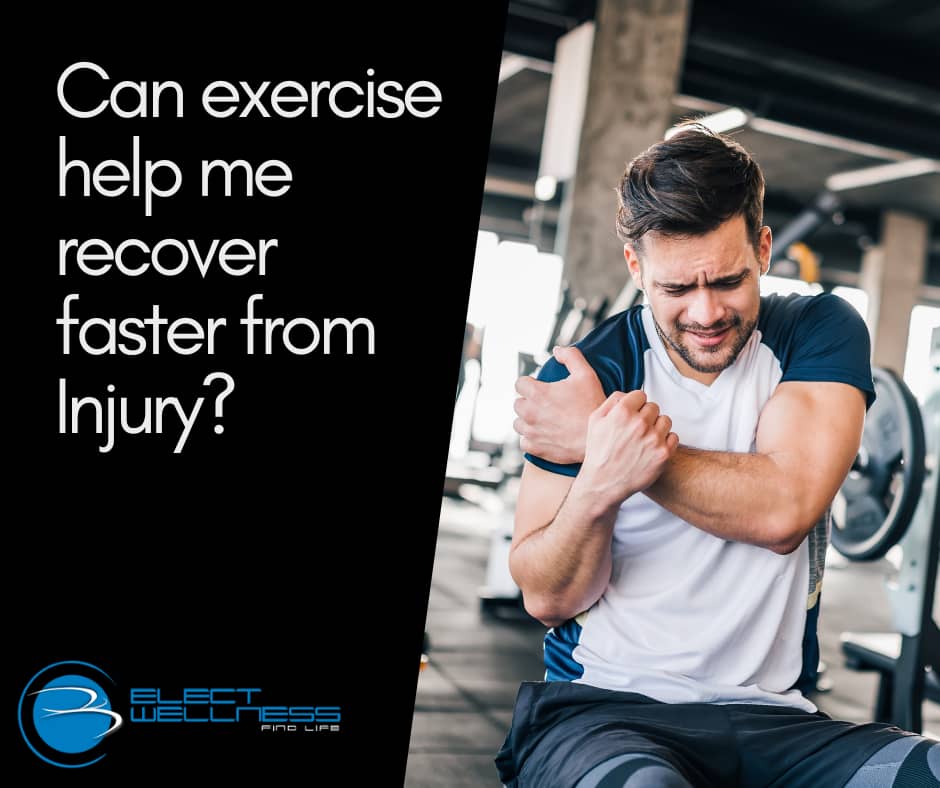
Ouch! Whether it’s a pulled muscle, a sprained ankle, or something more serious, injuries can leave us feeling sidelined and frustrated. While rest is crucial in the initial stages of healing, exercise can actually be a powerful ally in your recovery journey.
Why Exercise Speeds Up Recovery
1. Boosts Blood Flow: Exercise pumps fresh blood, rich in oxygen and nutrients, to the injured area. This improves the delivery of healing elements and removes waste products, accelerating the repair process.
2. Improves Flexibility & Strength: Gentle movement helps maintain and even improve flexibility and strength around the injury, preventing stiffness and reducing the risk of re-injury.
3. Prevents Scar Tissue: Increased blood flow and mobility can help prevent excessive scar tissue from forming, which often leads to long-term discomfort or limited range of motion.
4. Reduces Pain & Swelling: Exercise triggers the release of the body’s natural painkillers (endorphins), and can also reduce inflammation and swelling, making recovery more comfortable.
5. Keeps You Mentally Strong: Staying active combats the boredom, isolation, and frustration that can accompany injury. A positive mindset is a powerful part of the healing process.
Don’t picture yourself back in the gym lifting record-setting weights the day after your injury. Start slow and listen to your body. Opt for gentle, low-impact exercises to get started.
Your Recovery Checklist
✔ Consult a Professional
Talk with your doctor or physical therapist before starting any exercise program. Get personalized recommendations to ensure you’re healing safely.
✔ Start Slow, Progress Gradually
Begin with basic movements and increase intensity over time as your pain subsides and strength returns.
✔ Listen to Your Body
Pain is a red flag. If you notice discomfort, swelling, or unusual fatigue, ease off and seek guidance.
✔ Be Patient
Healing takes time. Focus on consistency and gentleness, not speed. The goal is sustainable recovery, not shortcuts.
Looking Ahead: Focus on Injury Prevention
Once you’re back on your feet, don’t stop there. Shift your attention to injury prevention by building a strong, resilient body through balanced exercise, mobility work, and good form. After all, the best kind of recovery is the one you never have to make.

Thomas C. Jensen is an exercise physiologist, nutritionist, and a nationally certified personal trainer through both the National Strength and Conditioning Association and the National Academy of Sports Medicine. He is a summa cum laude graduate of Harding University and a member of the Alpha Chi National Honor Society. As a wellness speaker and franchisor, he has shared his expertise in health and fitness with diverse audiences. He has been professionally training and consulting clients of all ages and backgrounds, for both health and human performance, for over 20 years. In March of 2004, he launched Elect Wellness, a thriving home-delivered personal training and nutrition coaching company, which has since expanded into an effective franchise system.



























